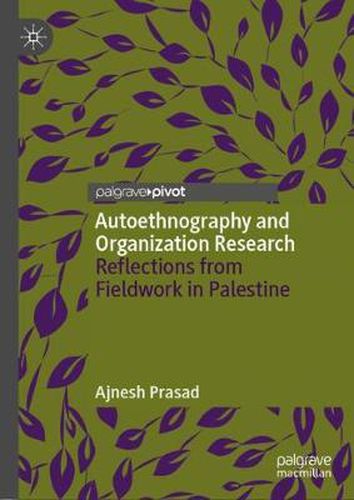Readings Newsletter
Become a Readings Member to make your shopping experience even easier.
Sign in or sign up for free!
You’re not far away from qualifying for FREE standard shipping within Australia
You’ve qualified for FREE standard shipping within Australia
The cart is loading…






This title is printed to order. This book may have been self-published. If so, we cannot guarantee the quality of the content. In the main most books will have gone through the editing process however some may not. We therefore suggest that you be aware of this before ordering this book. If in doubt check either the author or publisher’s details as we are unable to accept any returns unless they are faulty. Please contact us if you have any questions.
As a method for empirical inquiry, autoethnography has gained much purchase among business school academics. This book offers exemplars of how autoethnography can be leveraged to study myriad organization and management phenomena. Drawing on his own fieldwork in Palestine, the author engages with several timely questions including: What are the ethical implications of pursuing organization research at neo-colonial spaces? How should we account for the ‘Other’ when studying in ideologically fraught sites? And, how should we write so as to capture the spirit of autoethnography? In sum, this seminal text highlights the benefits of autoethnography in business school research.
$9.00 standard shipping within Australia
FREE standard shipping within Australia for orders over $100.00
Express & International shipping calculated at checkout
This title is printed to order. This book may have been self-published. If so, we cannot guarantee the quality of the content. In the main most books will have gone through the editing process however some may not. We therefore suggest that you be aware of this before ordering this book. If in doubt check either the author or publisher’s details as we are unable to accept any returns unless they are faulty. Please contact us if you have any questions.
As a method for empirical inquiry, autoethnography has gained much purchase among business school academics. This book offers exemplars of how autoethnography can be leveraged to study myriad organization and management phenomena. Drawing on his own fieldwork in Palestine, the author engages with several timely questions including: What are the ethical implications of pursuing organization research at neo-colonial spaces? How should we account for the ‘Other’ when studying in ideologically fraught sites? And, how should we write so as to capture the spirit of autoethnography? In sum, this seminal text highlights the benefits of autoethnography in business school research.